Senior declawed cat gets help for pain so her spunky personality can shine
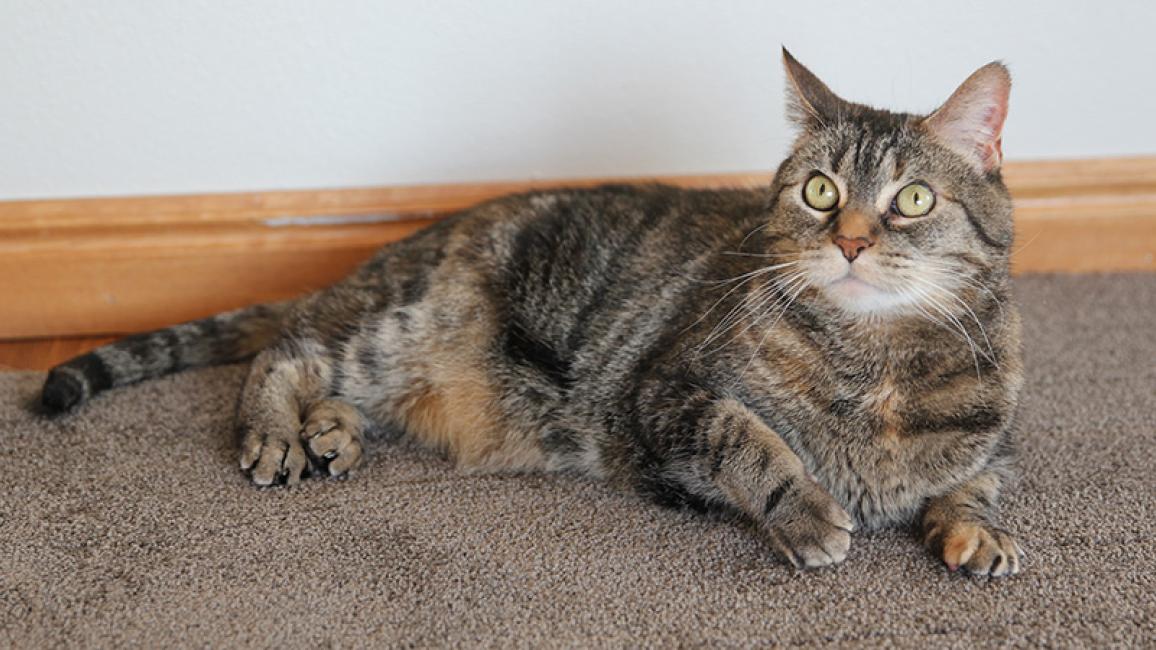
With her soft locks and sweet face, it’s no wonder everyone wanted to get close to Yorbia, a senior cat at the Best Friends Lifesaving Center in Salt Lake City. But after arriving from Wild Blue Cat Rescue, a Best Friends Network partner organization in Colorado, Yorbia wasn’t always up for the attention.
“She was pretty cranky the majority of the time,” says Jaime Schnell, a center adoption specialist who spent a lot of time with Yorbia. Sometimes she loved being petted, while other times she preferred being admired from afar. And she had no problem being assertive. “Yorbia was one of those three-pets-not-four kind of cats.”
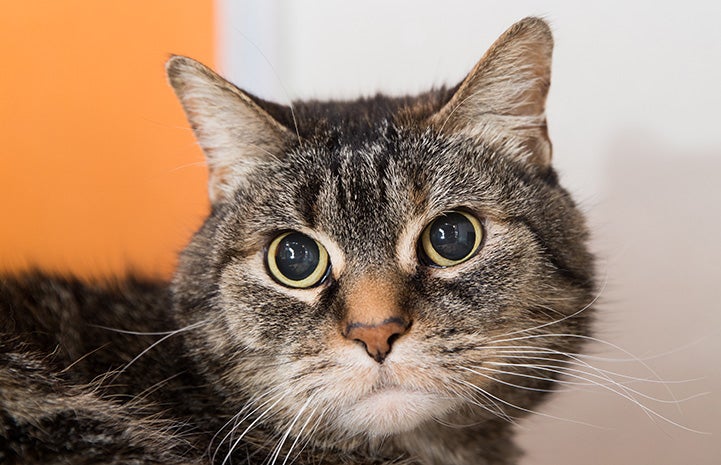
Yorbia had a reason to be moody. The fact that she had been declawed before arriving at Wild Blue Cat Rescue caused her to develop behavioral problems common to cats enduring this very painful procedure: joint stiffness, balance issues and even lameness.
At Best Friends, Yorbia got nothing but love and acceptance, no matter what kind of mood she was in.
How Best Friends is helping Utah become a no-kill state
Help for a declawed cat
Jaime says it’s not always easy helping declawed cats find homes. “Once people learn how declawing a cat can manifest into behavior and medical issues, they sometimes shy away from adopting one,” she says.
In Yorbia’s case, adoption proved even more elusive because she’s also in the beginning stages of kidney disease. And while she’s otherwise healthy, she requires extra veterinary checkups and a special diet to keep her that way.
The longer Yorbia waited for a home, the more the team was concerned. Since she was on a special diet, it was best to keep her in a cat tower away from other cats so she wouldn’t be tempted to eat their food. “We’d bring her out when we could, but most days she wasn’t having it,” says Jaime, who sometimes would lie awake at night, worried about Yorbia. “I could tell she was depressed.”
Yorbia had X-rays to see if she needed a second surgery on her paws (from a botched declaw), but she didn’t.
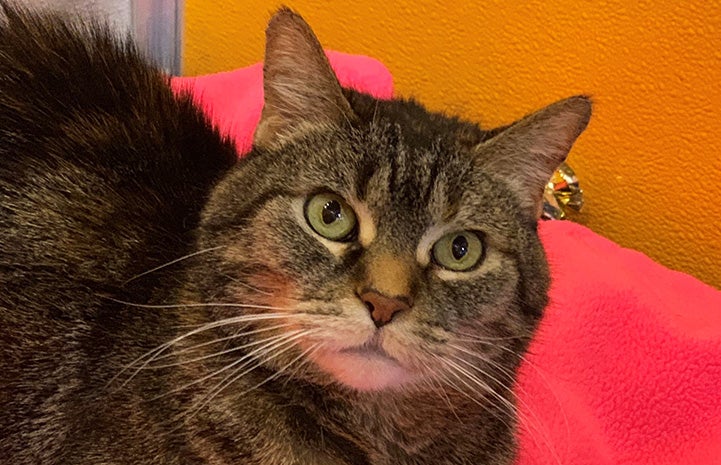
Cranky cat conundrum
Nothing seemed to help Yorbia break her bad mood, so the team did more triage. Staff decided it was time to pull out all the stops to make Yorbia feel better again. Best Friends veterinarians, suspicious that she was still in pain from her declawing procedure, started her on pain medications.
On one hand, the medications worked. On the other, they proved to be a source of even more stress for Yorbia, who doesn’t like being given medicine. She began to flinch every time someone would come near her. “It was breaking our hearts,” says Jaime.
“We were also going back and forth on whether we should pull her off the medication completely. Was she better with possible pain in her paws and not receiving medication, or was it better to stress her out twice a day so she was pain free?”
It was a conundrum, for sure, but then came a real turning point for Yorbia. When Julie Harrison stopped by the center wanting to meet cats waiting for a home longer than most, the team introduced her to Yorbia. “She first looked at me with critical eyes,” says Julie. “But when she reached her paw out to me I knew I passed her test. So really, she picked me.”
Considering Yorbia’s medical and behavioral challenges, Best Friends suggested that Julie “foster-to-adopt” Yorbia and see how she did in her home. They also decided to find out how Yorbia did at Julie’s place without any medication. She did great, and that’s when Julie decided there was just one more thing left to do — make it official and adopt her.
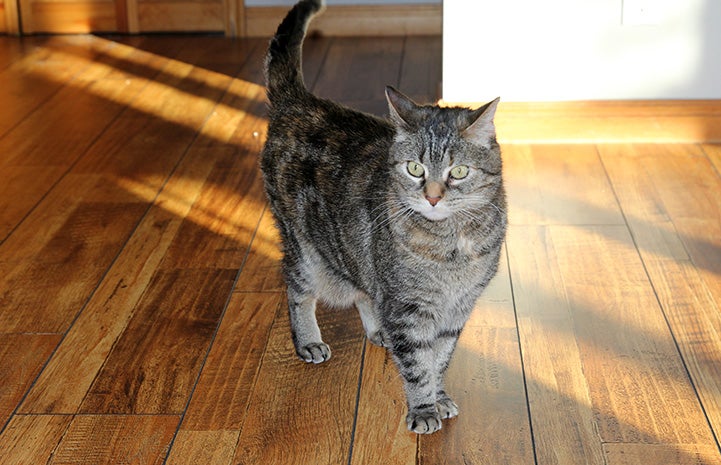
Who’s the boss? The cat, of course
Today, Yorbia’s preferred position is on Julie’s lap. “She's my shadow,” says Julie. “When she's not sleeping under the blankets or under any type of tent I make for her, she’s surprisingly playful. It’s not uncommon for her to jump up the walls or run in circles on the bed chasing things only she can see.”
Julie says Yorbia shows no signs of discomfort from her declaw procedure. As for her kidney issues, Julie manages to keep them in check, thanks to a special diet that includes making sure she has plenty of fresh water at all times.
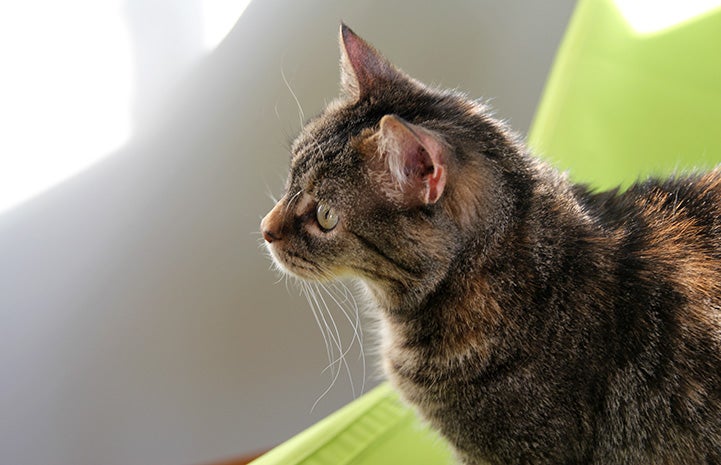
It took a while, but Yorbia has finally found her person. “She loves to talk and is quite chatty when I come home,” says Julie. “She always tells me all about her day and listens as I tell her about mine.”
In fact, the sassier the better, says Julie. “I'm so very thankful Yorbia can spend her retirement years with me, and can't imagine life without this bossy cat.”
Adopt a wonderfully bossy cat near you
Best Friends in Utah works collaboratively with animal rescue groups, city shelters and passionate individuals, all dedicated to the mission of making Utah a no-kill state. As part of this mission, Best Friends hosts adoption and fundraising events, runs the Best Friends Pet Adoption Center in Salt Lake City, operates two spay/neuter clinics and leads the No-Kill Utah (NKUT) initiative. Together, we will Save Them All.
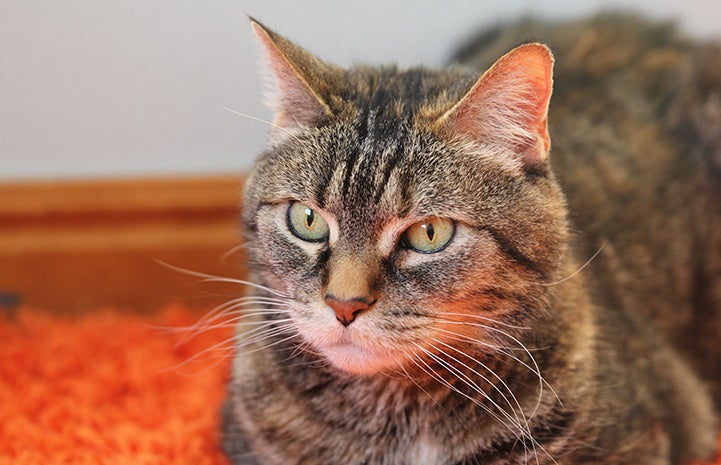
Photos courtesy of the Best Friends Lifesaving Center in Salt Lake City, Erin Fell and Sarah Ause Kichas